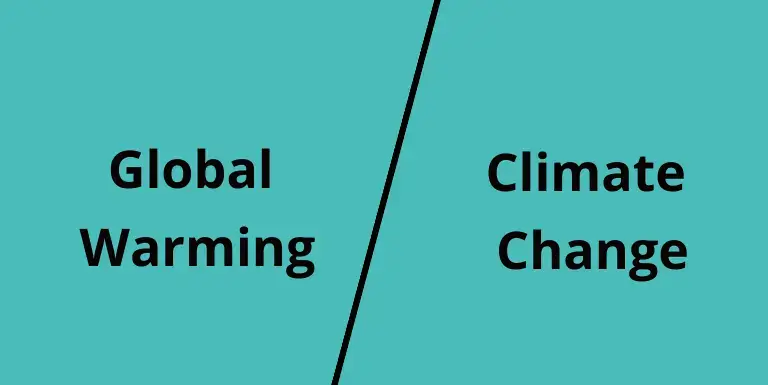Difference Between Global Warming And Climate Change : The ongoing drastic changes in the Earth’s atmosphere have been greatly affecting the way we live in the world today.
Highland farmers are no longer able to plant their crops well because the seasonal weathers have been unpredictable.
Summers have become way hotter than usual. The snows during winters are starting to get thinner.
Global warming and climate change are the two terms that are used interchangeably to refer to this drastic change in the Earth’s atmosphere.
The popular media often gives the impression that these two terms mean only one and the same thing.
However, that is not really the case. When it comes to their respective definitions alone, their distinctions are quite apparent.
What is Global Warming
Global warming refers to the increase in the world’s average temperature.
This increase in the global temperature is said to be due to the rapid build-up of greenhouse gases in the atmosphere.
These greenhouse gases come from the burning of fossil fuels.
Global warming, however, does not mean that all places on earth have become warmer and warmer.
Only the average prevalent temperature in the world is referred to by global warming.
What is Climate Change
Meanwhile, climate change is the result or effect of this rapid rise in the earth’s temperature. The summers have been increasingly humid and arid.
The snows during winter are now thinner compared to those during winters from many years ago.
The ice glaciers are melting. All these amount to the eventual change of the climates in places all over the world.
Among other things, experts believe that this change was brought about by global warming.

Difference Between Global Warming And Climate Change
In other words, the average temperature referred to in global warming is basically large-scale and inclusive whereas climate change, by the word climate itself, is generally local. Additionally, the former is measured only by the world’s total temperature changes.
The latter, on the other hand, involves more than one factor to measure up the average of the weathers in order to evaluate the changes in the climate. Global warming is just one of those factors.
Other factors to determine climate change include humidity, cloudiness, rain or snow precipitations, wind, and atmospheric pressures (high and low). The climate histories of particular regions in the world are also evaluated.
Let us further illustrate the terms to make things even simpler.
The early morning sun that used to be warm and comforting has become hot and harsh in many places in the world. Most of the huge and solid ice glaciers have melted and are now gone.
Crop plantations experience an early and longer drought season than usual.
Sunbathing during summer to get a good tan is now no longer advised by dermatologists because the sun rays have become more damaging to the skin. All of these are instances that prove global warming.
Meanwhile, there is climate change when, in some particular places in the world, rainfalls occur frequently out of season, it suddenly begins to snow when it should not have, or there is an unusual duration of aridity in an otherwise typical wet season.
With the above discussion, it is fairly easy to conclude what the difference is between global warming and climate change.
Think of it this way: global warming is the cause while climate change is the effect. The concept is the same thing as when we say that HIV is to AIDS, too much sugar is to diabetes, and influenza virus is to flu.
In the technical sense, global warming is the increase in the average temperature of the world as a whole while climate change is the sudden and drastic change of the climates in various places of the world.
Hope by now you understood the difference Between Global Warming And Climate Change. Share your thoughts with us below.